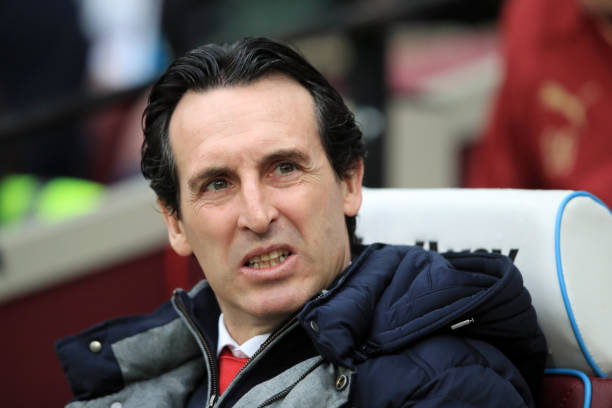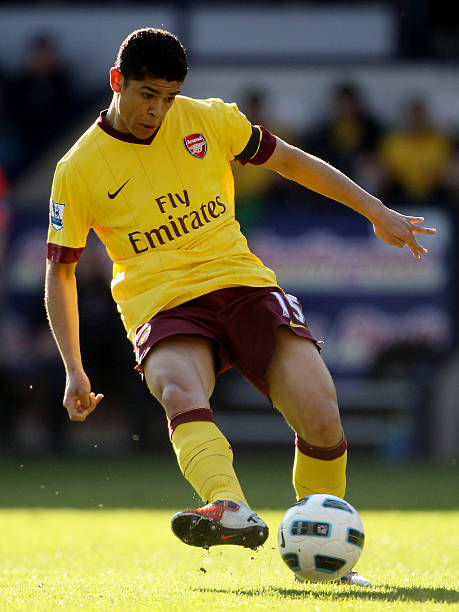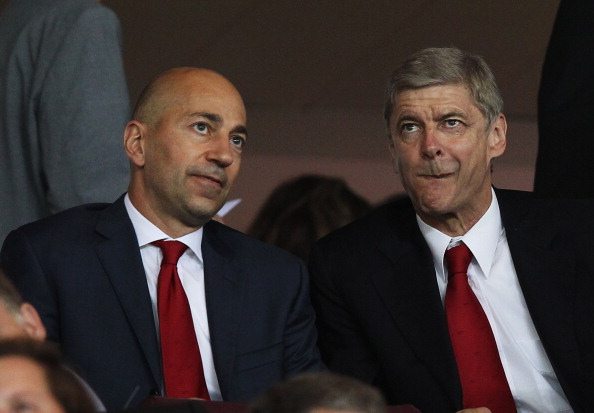Despite being one the best run clubs in the country for the majority of the last century, under the watch of Ivan Gazidis, Arsenal seriously dropped the ball at exactly the wrong time.
The rules

Having written at length about the state of the Arsenal first team squad and the commensurate need for investment, I’ve seen and heard a lot of comment about how the Liverpool game and the rush for fourth may encourage Stan Kroenke to spend some of the Wall-Mart billions.
Unfortunately, I’m here to give everyone a reality check. And not just the obvious one about Silent Stan’s reluctance to spend. The fact is, even if KSE wanted to go full Abramovich or Sheikh Mansour, it simply isn’t possible, due to regulations that govern football clubs in the Premier League.
Apologies to readers who know this, but most Arsenal fans, and indeed football fans as a whole, don’t.
You see, while Uefa’s FFP has shown itself as toothless and corruptible as you’d expect given the nature of that governing body, the Premier League’s version, Short Term Cost Controls (STCC), has shown itself to have a little more teeth, although typically in ways that benefit some parties more than others.
Perhaps intended to work in tandem with UEFA’s model that deals with overall spending vs income, the EPL version is rather more specific. The Premier League recognised that it was wage inflation rather than transfer fee inflation that was posing the greater risk to the stability of football clubs – just ask Leeds United, Q.P.R and Sunderland fans. The recently implemented regulations (which into effect in 2016/17) seek to stop these spiralling out of control, particularly against the backdrop of TV money accelerating the increase in player wages. These regulations were also influenced by the consistent proof that at all but the obscene levels of transfer expenditure, it is the amounts of money spent on wages rather than on initial signings that has the greater correlation with league position.
Accordingly, rules were introduced to put a cap on increases in wage expenditure, in a manner that attempted to be fair across the board.
This was laid out in a number of ways:
- STCC rules only apply to clubs with an annual wage bill of more than £67m (including salaries, bonuses and image rights).
- Using the previous year’s wage bill as a baseline (unless the club wishes to use 2012/13 season – which almost none do given how much wages have increased), these clubs cannot raise wages by more than £7m per annum (or a set figure if using the 2012/13 baseline that stood at £19m in 2016).
- These rules are directly related to centralised TV revenue distribution. So, if a club demonstrates its wage increases are financed by its ‘own revenue’, they can add to this £7m a year limit.
- ‘Own revenue’ includes player sales, commercial/sponsorship deals, match day income and UEFA & domestic prize distributions.
At a first glance, this all seems eminently sensible. If you are well managed, you should do better on the pitch, and as a result, generate more commercial revenue, match day income and prize money. Being well managed off the pitch should increase player sales revenue and other commercial income. As such, it is a very sensible model.
The problem is, these rules were introduced after the horse bolted in terms of encouraging a level playing field and preventing the abuse of the league’s competitive structure by vast owner financial input, thus inflating wage figures. By finally realising that the ‘greed is good’ mantra has its dangers even with the billions pumping into top-flight English football, the Premier League has cemented the new hierarchy formed by the uber-spenders of recent years.
4Sell, Sell, Sell!

Of greater concern than the mediocre at best incoming transfers, has been the club’s complete inability to get good prices for outgoing players. We are comfortably the worst team in ‘the big six’ at selling assets on the evidence of the last 5 ½ years.
It’s a staggering list of failure when one takes the time to look at it.
During that time the club has parted with Johan Djourou, Denilson, Andrei Arshavin, Andre Santos, Marouane Chamakh, Sebastian Squillaci, Gervinho, Nicklas Bendtner, Lukas Fabianski, Bacary Sagna, Lukas Podolski, Serge Gnabry, Tomas Rosicky, Abou Diaby, Kieran Gibbs, Gabriel Paulista, Wojciech Szczesny, Francis Coquelin, Oliver Giroud, Santi Cazorla, Jack Wilshere, Lucas Perez, Joel Campbell, Mathieu Debuchy, Jeff Reine-Adelaide (who is currently creating chances for fun for the awful strikers who he plays with in Ligue 1) and soon Aaron Ramsey, Petr Cech and Danny Welbeck for a grand total of £77m.
Every single one for a lower fee than we recouped for Thomas Vermaelen who wasn’t even fit to play the previous or following season, or Kolo Toure almost a decade ago.
Apart from those players who came through the Arsenal academy system and Oliver Giroud, that represents a significant financial loss on every one of those players. Given that domestic homegrown players normally have a significant premium on any transfer fees if sold to other EPL clubs, having nine in that list leave for nothing or far below market value shows a spectacular failure of asset management.
Add in having to effectively sacrifice an £80m transfer fee on Alexis Sanchez, and a plethora of those outside the first team squad leaving for peanuts, and the big picture is ugly. There is no doubt that the club has thrown away between £150-250m in transfer fees through mismanagement in that time period.
What makes it worse is seeing what our Premier League rivals are recouping in sales for significantly inferior players. Liverpool have just recouped what could become £19m for Dominic Solanke, a £15m profit for a player with one goal in English football and way down the pecking order. Equally, two weeks after we sold Gabriel for £10m to Valencia, Spurs recouped £20m from Stoke for Kevin Wimmer, who promptly got relegated. Man City got almost the same for Angus Gunn, without a single top-flight appearance to his name, as Arsenal recouped for Szczesny, a guy with 40 caps, nearly 300 top flight and European appearances (for Arsenal, Roma and Juventus), who has seamlessly replaced one of the best goalkeepers of the past 30 years.
Part of the issue is the failure to be decisive about players with contracts winding down, leaving the club repeatedly in a situation of players having control of their destiny at the expense of the club. It’s as if nothing was learned from the situations with Samir Nasri and Robin van Persie.
The same issue forced our hand in letting Alex Oxlade-Chamberlain leave, albeit for nearly £40m. Combined with previous transfers we’ve gone from having the largest number of home-grown players (as far as the rules go) in the top 6, to having the fewest alongside Man City, which could yet force our hands in uncomfortable ways in the seasons to come, looking at impending departures.
Part of the indecisiveness with contracts has been hubris. Having been forced to sell Nasri and van Persie to rivals all those years ago, the club and its leadership were determined to not be kow-towed into doing so again where possible. This is acceptable when you are consistently challenging for major honours or have the financial muscle to allow players to leave for free, but not when you are in Arsenal’s situation.
Refusing to sell players at the peak of their value, or when it has become clear that they aren’t going to renew their contracts on terms acceptable to the club has been a disaster, and one born of a totally unrealistic stance. Arsenal are not on the same footing as Man Utd, Man City, Real Madrid, Barcelona, PSG or Bayern Munich, and simply cannot afford to waste asset value as they have done in recent years.
The net result of doing so has seriously handcuffed the new manager and recruitment team in terms of what they can do in order to refresh this squad whilst keeping us in running for Champions League football, both in terms of spending money in the kitty and the ‘own revenue’ element of STCC.

